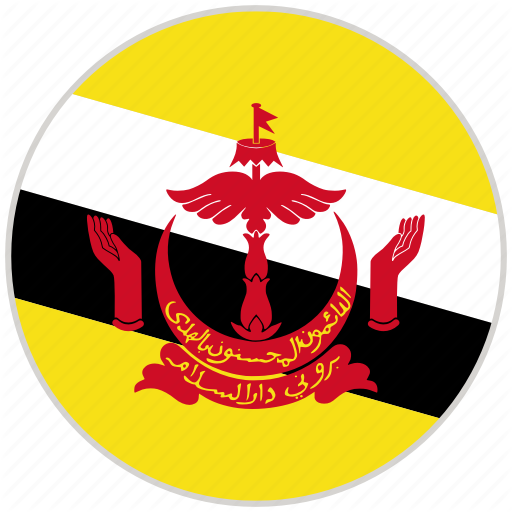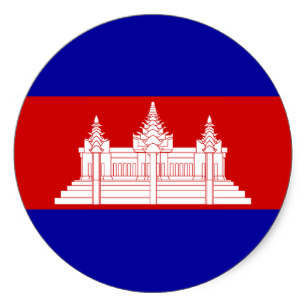17th Annual Conference in Tokyo, Japan (August 22-23, 2019)
The 17th Annual Conference was held in Tokyo, Japan from August 22-23, 2019. The co-host was the Japan Forum on International Relations, and 49 specialists and experts representing different think tanks in the ASEAN+3 nations participated.
16th Annual Conference in Yangon, Myanmar (September 17-18, 2018)
The 16h Annual Conference (AC) was held in Yangon, Myanmar from September 17 to 18, 2018. The co-host was Myanmar Institute of Strategic and International Studies (Myanmar-ISIS) and China Foreign Affairs University (CFAU), and 32 specialists and experts representing different think tanks in the ASEAN+3 nations participated.
15th Annual Conference in Busan, Korea (September 6-8, 2017)
The 15th Annual Conference (AC) was held in Busan, Korea from September 6 to 8, 2017. The host was Korean Institute of Southeast Asian Studies (Kiseas) and 33 specialists and experts representing different think tanks in the ASEAN+3 nations participated.
14th Annual Conference in Bangkok, Thailand (July 27-29, 2016)
The 14th Annual Conference (AC) was held in Bangkok, Thailand from July 27 to 29, 2015. The host was ASEAN University Network (AUN) Secretariat and 43 specialists and experts representing different think tanks in the ASEAN+3 nations participated.
13th Annual Conference in Bandung, Indonesia (September 6-8, 2015)
The 13th Annual Conference (AC) was held in Bandung, Indonesia from September 6 to 8, 2015. The host was University of Indonesia and 54 specialists and experts representing different think tanks in the ASEAN+3 nations participated.
12th Annual Conference in Phnom Penh, Cambodia (September 28-30, 2014)
The 12th Annual Conference (AC) was held in Phnom Penh, Cambodia from September 28 to 30, 2014. The host was General Department of ASEAN, Ministry of Foreign Affairs and International Cooperation and and 49 specialists and experts representing different think tanks in the ASEAN+3 nations participated.
11th Annual Conference in Kuala Lumpur, Malaysia (August 25-27, 2013)
The 11th Annual Conference (AC) was held in Kuala Lumpur, Malaysia from August 25 to 27, 2013. The host was Institute of Strategic and International Studies (ISIS) Malaysia and 78 specialists and experts representing different think tanks in the ASEAN+3 nations participated.
10th Annual Conference in Beijing, China (August 26-28, 2012)
The 10th Annual Conference (AC) was held in Beijing, China from August 26 to 28, 2012. The host was China Foreign Affairs University and 47 specialists and experts representing different think tanks in the ASEAN+3 nations participated.
9th Annual Conference in Danang, Vietnam (August 10-12, 2011)
The 9th Annual Conference (AC) was held in Danang, Vietnam from August 10 to 12, 2011. The host was Institute for Foreign Policy and Strategic Studies Diplomatic Academy of Vietnam and 45 specialists and experts representing different think tanks in the ASEAN+3 nations participated.
The 8th Annual Conference in Manila, the Philippine (August 23 - 24, 2010)
The 8th Annual Conference (AC) was held in Manila, the Philippine from August 23 to 24, 2010. The host was the Philippine Institute for Development Studies (PIDS) and 45 specialists and experts representing different think tanks in the ASEAN+3 nations participated.
The 7th Annual Conference in Seoul, Korea (August 30 - September 1, 2009)
The 7th Annual Conference (AC) was held in in Seoul, Korea from August 30 to September 1, 2009. The host was the Korean Institute of Southeast Asian Studies (KISEAS) and 37 specialists and experts representing different think tanks in the ASEAN+3 nations participated.
The 6th Annual Conference in Bali, Indonesia (August 24-25, 2008)
The 6th Annual Conference (AC) was held in Bali, Indonesia from August 24-25, 2008. The host was the Center of East Asian Corporation Studies (CEACOS) of Indonesia University. Around 50 representatives and experts from the 11 ASEAN+3 nations participated.
The 5th Annual Conference in Singapore (August 21-22, 2007)
The 5th Annual Conference was held in Singapore from August 20-22, 2007. The East Asia Institute at Singapore National University hosted the conference, and around 60 representatives and experts from the 13 ASEAN+3 nations participated.
The 4th Annual Conference in Kuala Lumpur, Malaysia (August 22-23, 2006)
The 4th Annual Conference was held in Kuala Lumpur, Malaysia from September 22 to 23, 2006. All 10 ASEAN member countries, China, Japan and Korea took part in this meeting.
The 3rd Annual Conference in Tokyo, Japan (August 21-23, 2005)
The 3rd Annual Conference was held in Tokyo,Japan from August 22 to 23, 2005. The meeting was organized by the Japan Forum on International Relations, Inc. The meeting was attended by participants from the ASEAN+3 countries with the following institutions as the Country Coordinators: Brunei Darussalam Institute of Policy and Strategic Studies, Ministry of Foreign Affairs, Brunei; General Department of ASEAN, Ministry of Foreign Affairs and International Cooperation, Cambodia; Center for East Asian Studies, China Foreign Affairs University, China; Center for East Asian Cooperation Studies, Indonesia; The Japan Forum on International Relations, Inc., Japan; Korean Institute of Southeast Asian Studies, Korea; Institute of Foreign Affairs, Ministry of Foreign Affairs, Laos; Institute of Strategic and International Studies, Malaysia; Myanmar Institute of Strategic and International Studies, Myanmar; Philippine Institute for Development Studies, The Philippines; East Asian Institute, National University of Singapore, Singapore; Institute of East Asian Studies, Thammasat University, Thailand; and Institute for International Relations, Ministry of Foreign Affairs, Vietnam. ASEAN Secretariat participated as a resource person.
The 2nd Annual Conference in Bangkok, Thailand (August 16-17, 2004)
The 2nd Annual Conference was held in Bangkok, Thailand from August 16-17, 2004. The meeting was jointly organized by the Institute of East Asian Studies, Thammasat University, Saranrom Institute of Foreign Affairs, Ministry of Foreign Affairs of Thailand, and Thailand Research Fund. The meeting was attended by participants from the ASEAN +3 countries with the following institutions as the Country Coordinators: Brunei Darussalam Institute of Policy and Strategic Studies, Ministry of Foreign Affairs, Brunei; General Department of ASEAN, Ministry of Foreign Affairs and International Cooperation, Cambodia; Center for East Asian Studies, China Foreign Affairs University, China; Center for East Asian Cooperation Studies , Indonesia; The Japan Forum on International Relations, Inc. Japan; Korean Institute of Southeast Asian Studies (KISEAS), Korea; Institute of Foreign Affairs, Ministry of Foreign Affairs, Laos; Institute of Strategic and International Studies (ISIS) Malaysia; Myanmar Institute of Strategic and International Studies (MISIS) Myanmar; Philippine Institute for Development Studies, The Philippines; East Asian Institute, National University of Singapore, Singapore; Institute of East Asian Studies, Thammasat University, Thailand; and Institute for International Relations, Ministry of Foreign Affairs, Vietnam.
At the opening session, Associate Professor Yupha Klangsuwan, Director of Institute of East Asia Studies, Thammasat University, the organizer of the 2nd NEAT Conference, delivered the opening remarks. Ambassador Wu Jianmin, President of University of Foreign Affairs of China, the organiser of the 1st NEAT Conference, also delivered the opening remarks. H.E.Mr. Saroj Chavanaviraj, Advisor to Minister of Foreign Affairs of Thailand delivered the Opening Address.
1. Towards an East Asian Community
The theme of the meeting was “Towards an East Asian Community". The participants exchanged views on how to promote East Asia Cooperation and East Asia Community. There were a variety of views and recommendations some of which can be summarized as follows:
Some participants had the view that the long term vision of East Asian cooperation is to create the East Asian Community. But the task is how to define what the East Asian Community is. One approach is to define it the way we define the ASEAN Community: that it will be based on three pillars: East Asian Security Community, East Asian Economic Community, and East Asian Socio-Cultural Community.
The participants called for increased efforts to foster a greater sense of community and to build an East Asian identity, not just among the government leaders but also among the ordinary people in the region. It should focus on the people-to-people approach.
East Asia cooperation should not start from scratch or from zero but it should be based on the existing cooperation (i.e. from ASEAN cooperation). The cooperation should be based on the “functional" approach by starting from the easy and less sensitive areas ; it should focus on deepening before widening the integrative process ; it should use building block approach; and it should evolve into an open regional community and open regionalism.
2. Economic Cooperation
The participants exchanged views on how to promote economic cooperation in East Asia. There were a variety of views and recommendations some of which can be summarized as follows:
For the long-term goal, the possibility of establishing the East Asia Economic Community in which there is a free flow of goods, services, investment and capital could be explored. The single market, the economic union with common external policy could also be examined.
The setting up of the East Asia Free Trade Area (EAFTA) should be on the high priority list. The building block approach could be used by consolidating the existing FTAs in the region.
ASEAN +3 Leaders should consider setting up an official expert group to start the feasibility study of EAFTA in 2005 and present a recommendation report in 2007.
Because of the existence of many regional and bilateral FTAs arrangements in East Asia, it is important that these arrangements adhere to a common framework and principle with a view to standardize and harmonize overlapping FTAs arrangement.
On financial cooperation, as a long-term goal, we could explore the possibility of establishing the East Asian Monetary Union, the East Asian Monetary Fund as the lender of last resort by pooling some portions of massive foreign exchange reserves held by ASEAN+3, a common or single currency, appropriate regional exchange rate regime, and development of regional bond market.
Further step should be made in strengthening financial cooperation through doubling the size of SWAP arrangements under the Chang Mai Initiative.
An expert group could be set up to start feasibility study for a regional monetary fund.
There were also proposals to establish the ASEAN+3 entrepreneur forum, East Asia trade and investment facilitation initiative, energy initiative focusing on energy policy coordination.
3. Political and Security Cooperation
On political and security cooperation, the participants exchanged views on how to promote the cooperation in East Asia .There were a variety of views and recommendations some of which can be summarized as follows:
In order to enhance mutual understanding and common security awareness and perceptions, a joint study on mutual perceptions of each other and common threats and the increase of security dialogues and exchange of experts and observers were needed.
It was recommended that NEAT members are to be actively involved in the making of action plans for institutionalization of regional security cooperation in East Asia.
For the long-term goal, we could explore the possibility of setting up the East Asia Security Community taking into account the evolution of the ASEAN Security Community.
New measures to establish the modalities for the East Asian Security Community could be explored. The measures can include: confidence-building measures, preventive diplomacy, and conflict resolution mechanism.
Some participants suggested to strengthen regional mechanisms for cooperation on non-traditional security issues.
On the issue of human security, initiatives for the cooperation in the areas of infectious diseases, drug trafficking, human trafficking were recommended.
4. Socio-Cultural Cooperation
The participants exchanged views on how to promote socio-cultural cooperation in East Asia. There were a variety of views and recommendations some of which can be summarized as follows:
Cultural diversity was the strength of East Asian region; the regional identity building should therefore be based on the process of unity among diversity.
As a long-term goal, we could explore the possibility of establishing the East Asian Socio-Cultural Community bonding East Asia together as a community of caring societies.
Regional solidarity and identity could also be developed through expanded personnel exchanges among East Asian countries at all levels.
5. Institutionalization
The participants exchanged views on institutional aspects of East Asian Community building. There were a variety of views and recommendations some of which can be summarized as follows:
Some participants recommended that ASEAN should remain the driving force for the evolution of structure and process of regional community-building. But there should be continuing discussions on the modality that should avoid marginalization of ASEAN but at the same time give greater ownership to China, Japan, and Korea.
Some participants expressed the views that ASEAN+3 Summit framework should remain the vehicle to advance the process of cooperation. The evolution of East Asian Summit (EAS) is a desirable objective, but it should be part of an evolutionary process that builds on the comfort level and parallel with the ASEAN+3 framework. In a process of finding the right modality, in the mean time, as a practical approach, the dual-track approach by engaging in the process of cooperation through both the ASEAN+3 mechanism and at the same time supporting holding the EAS at the suitable time could be considered.
Some participants express the views that it is important to move the current “10+3" process into an East Asian Summit (EAS). Declaration on East Asian Community could be issued. The EAS could commission NEAT to prepare the Roadmap to East Asian Community.
Some participants felt that further discussion is needed concerning the issue of the secretariat of East Asia Cooperation. The issue is that should we establish a new secretariat or using the ASEAN Secretariat by setting up the new ASEAN+3 unit within the ASEAN secretariat. Some participants also suggested setting up new coordinating mechanism for all ASEAN+3 activities and meetings.
Setting up the national focal point for East Asia Cooperation is suggested the possibility of establishing the “East Asia Information Center" should be explored.
In terms of membership, some participants felt that the principle is that it should be inclusive rather than exclusive. East Asia should not just include ASEAN countries, China, Japan, and South Korea. In the long term, it should expand to have an region-wide coverage. In order to build the East Asian Community, it was necessary to involve various actors, including government officials (Track One), academics (Track Two) and other private sectors and civil society (Track Three).
6. Organization of NEAT
The Country Coordinators' meeting adopted the “Basic Rules and Framework of the Network of East Asian Think-Tanks (NEAT) which incorporates the purposes and functions of NEAT, membership, Country Coordinators meeting, secretarial work, the Annual Conference and funding.
The Country Coordinators' meeting adopted the “Basic Rules and Framework of the Network of East Asian Think-Tanks (NEAT) which incorporates the purposes and functions of NEAT, membership, Country Coordinators meeting, secretarial work, the Annual Conference and funding.
The meeting discussed the activities for future cooperation which include issue for further studies, setting up three working groups to study regional security, economic and socio-cultural issues, the future workshops and roundtables, and joint research and publication.
The meeting agreed that the Memorandum Paper incorporating policy recommendations from the 2nd NEAT would be prepared and submitted to the ASEAN+3 Meeting particularly to the ASEAN+3 Summit in November 2004.
The meeting agreed that Japan's Country Coordinator will be the host for the 3rd Annual Conference of NEAT.
The 1st Annual Conference in Beijing, China (September 29-30, 2003)
The meeting on East Asian Cooperation and the inauguration of Network of East Asian Think-tanks (NEAT) was held on 29-30 September 2003 in Beijing, China. Nearly one hundred scholars from the leading research institutions and universities of Brunei Darussalam, Cambodia, China, Indonesia, Japan, Korea, Lao PDR, Malaysia, Myanmar, the Philippines, Singapore, Thailand, and Viet Nam attended the conference. Mr. Tang Jiaxuan, State Councilor, PR. China gave a speech on the opening session and expressed the strong support to NEAT on behalf of the Chinese government.
The establishment of NEAT represents an important step for East Asian cooperation since this is the first intellectual network initiated and supported by the East Asian governments.
The building of NEAT was under the request of the Sixth ASEAN+3 Summit. On November 4th, 2002 in Phnom Penh, Cambodia, the leaders of ASEAN+3 countries endorsed the Final Report of the East Asia Study Group and requested that the 17 short-term measures in the Report be implemented as soon as possible. China volunteered to be the prime mover on the measure of building a Network of East Asian Think-tanks, which was well received by all countries concerned.
The function of NEAT is to pool together academic resources of East Asian countries to provide intellectual support for East Asia cooperation. It aims to set up a platform to promote communication and exchanges between East Asia and the rest of the world. It intends to promote study issues and initiatives brought forward by the 10+3 Summit meetings, as well as study major issues concerning East Asia cooperation in key areas.
NEAT will hold the annual meeting in rotation within East Asian countries, which will be attended by all institutional, and scholar members. NEAT will set up a system, which will facilitate mutual exchanges of research information among the member. An Internet homepage will be set up to publicize the developments on East Asia study and publish research achievements made by institutional and individual members, as well as documents relating to East Asian cooperation process. Virtual workshops and exchanges through the Internet may also be organized to build up the research constituent. NEAT may organize various kinds of activities such as exchange of scholars. NEAT will designate its institutional or individual members as representatives to participate in international conferences and other activities. Reports on joint researches will be published irregularly. Some theme reports will be submitted to the annual ASEAN+3 Summit taking into consideration the established procedures for reporting to the Summit.
During the conference, participants discussed many important subjects ranging from how to move towards East Asia cooperation, to key approaches on consolidating East Asia cooperation and the priority areas. Scholars made their recommendations to the forthcoming “10 + 3" leaders meeting held on October 7-8 in Bali, Indonesia on strengthening institutional building for East Asian cooperation process, issues like a secretariat for East Asia cooperation, East Asian Summit, East Asian FTA, as well as developing political and security cooperation.











.png)



.png)




